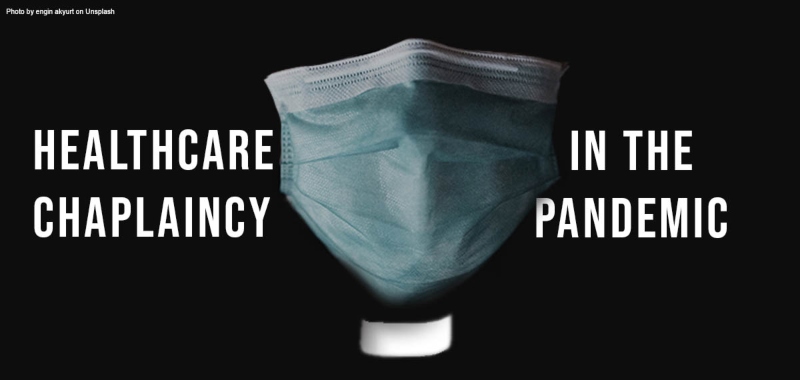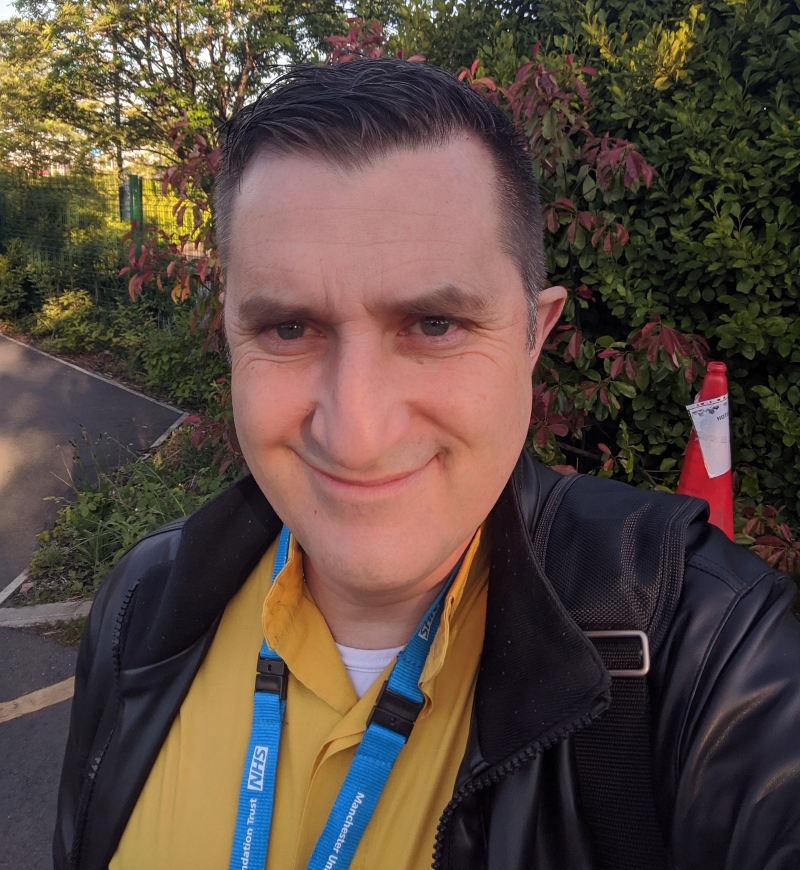Healthcare chaplaincy in a pandemic
In a pandemic, when we have a new disease about which so little is known, we have to be careful, writes Nik Hookey. But we can sit with those who are dying, and they can know that someone who understands their spirituality is there with them

“I feel like I’m on a desert island,” she said. “I’m so alone. There’s nothing to do. They said there would be other people in this room. But they brought me in here and left me here, all alone.”
“I’m so glad to see you,” she added.
I smiled at her to reassure her. Then I realised that she could not see my smile, because it was hidden behind my surgical mask. The only clue that I was a chaplain was the little white plastic strip of a clerical collar at my throat. This addition to my clothing, which for years before I had considered to be an affectation, suddenly seemed so important.
“My son can’t visit me,” she went on. “He brought me in, so now he has to self-isolate. He works for the church. do you know him?”
I shook my head. She had told me this the first time I met her, and I did not know her son. I did know that she had been without visitors for days, and she was one of the first in the area to get the virus.
“Shall I read you some verses from the Bible, and pray for you?” I asked.
“Yes please,” came the reply.
When I left, a while later, she was reassured. She was not forgotten. She was cared for. And the NHS cared enough for her to make sure that her spiritual needs could be met as well as her medical needs.
 Hospital chaplains are a presence in hospitals where it is difficult for patients to access their usual religious, spiritual or emotional support. We have time with patients that busy nurses don’t have.
Hospital chaplains are a presence in hospitals where it is difficult for patients to access their usual religious, spiritual or emotional support. We have time with patients that busy nurses don’t have.
But in a pandemic, when we have a new disease about which so little is known, we have to be careful. We are trying to support staff and patients through telephone calls, so that we contribute as little as possible to spread of infection around the hospital. We have been trained in specialist PPE, so that we can go into critical care wards. So that we can sit with those who are dying, and they can know that someone who understands their spirituality is there with them.
Chaplains are frustrated. We want to be at the bedsides of people whose faith leaders have asked us to give support. We want to offer them readings, and prayers and communion. But right now we are only visiting patients in end of life and emergency situations. I have end of life prayers and readings at the ready on my phone, rather than words to share communion. And sometimes we just sit in the office, waiting for the phone to ring.
Staff are frightened too. We know that some of our own colleagues will contract the disease, and some will die. We know that some have. Staff are frightened of the impact the virus might have on them and others. They wonder, “What if I get it? What if I transfer it to my loved ones?” We know that some of our colleagues in the NHS have already died.
Now there is no time to mourn. Many are kept away from crematoria, as limits are placed on the numbers who can attend. Like the rest of the population, we know that we cannot mourn properly now, but the time will come when we will remember them properly. For now, we try to support staff as best as we can.
It’s 2.30 in the morning. The phone rings at my bedside, waking me up. “Can you come and see a patient? He’s dying and his family can’t get here in time.”
Of course I can. It’s the least we chaplains can do.
Nik Hookey is part of the chaplaincy team at Manchester University NHS Foundation Trust
Related
Do you have a view? Share your thoughts here.
Baptist Times, 20/05/2020